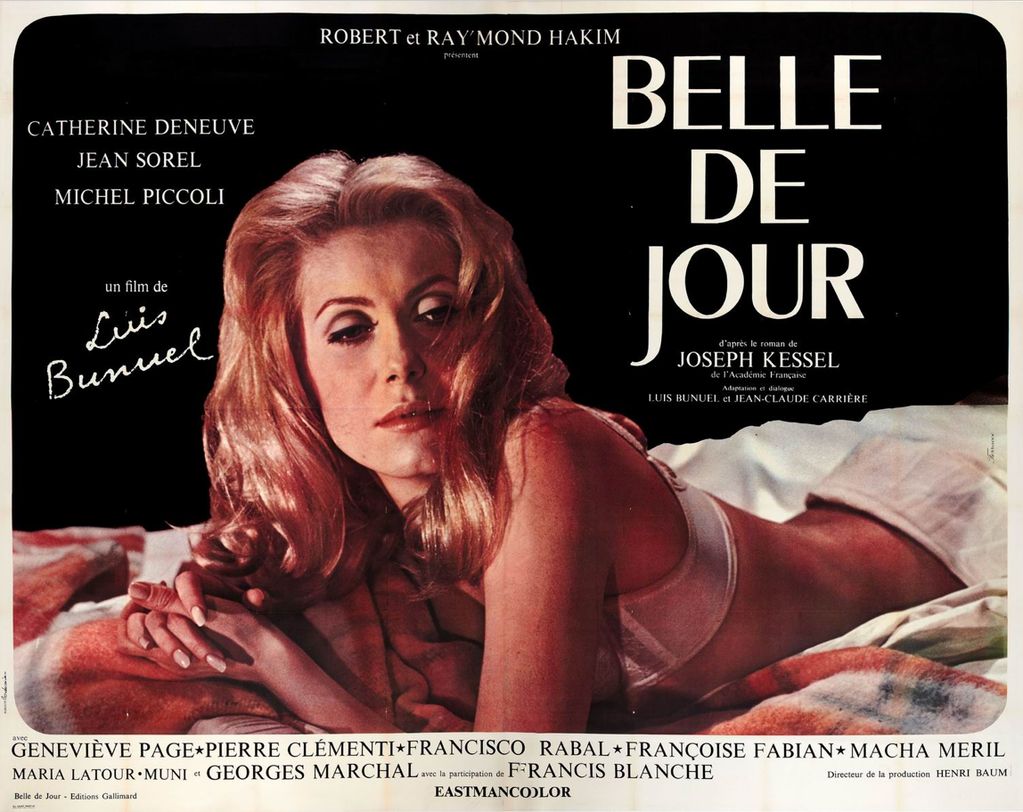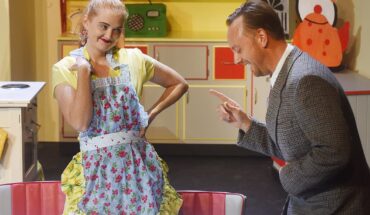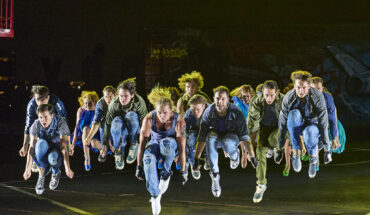One of the 20th Century’s most celebrated erotic films, Luis Buñuel’s sensual and surreal Belle de Jour won four awards when it was released in 1967, including the Venice Film Festival Golden Lion award and French Syndicate of Cinema Critics Award for Best Film. It also earned Catherine Deneuve her first (and only) BAFTA nomination for Best Actress.
Last night (22 July), the Alliance Française de Sydney treated us to a screening of the erotic classic during the media launch of its inaugural French Classic Film Festival, which is to take place from 3-6 September 2015 at Event Cinemas St George and Hayden Orpheum Cremorne respectively. A Catherine Deneuve retrospective, the four-day festival will also feature Jacques Demy’s charming 1964 musical Les parapluies de Cherbourg and Régis Wargnier’s 1992 epic, Indochine, which sees Deneuve play a plantation owner in one of her strongest roles to date.
Belle de Jour may not be as sexually shocking to today’s audiences as it was in the late 1960s, but it’s as beguiling and entertaining in 2015 as it’s ever been. The opening kidnap scene is surreal and disturbing, and Buñuel’s ability to make us uneasy couldn’t be made any more potent with modern methods of film making. The deliberate use of montage for visceral flash backs and violent sexual fantasy, even if crude compared to lick scene transitions seen in modern blockbusters, will never cease to be affecting.
The plot revolves around a recently-wed couple, Pierre the doctor and Séverine the elegant wife, who’s sex life hasn’t yet materialised because of an inferred trauma in Séverine’s past. While she can’t seek intimacy with her husband, Séverine is drawn to working as a prostitute in the afternoons, something that will have disastrous consequences.
What’s truly timeless about the film is the director’s genius in developing multidimensional characters. Michel Piccoli’s Henri Husson is as dry and amusing as he is intimidating. And Deneuve makes Séverine, AKA Belle, childish and anxious sometimes and self-assured and sultry at others. Deneuve’s is a starkly bipolar character, with only Bruñuel’s montaged daydream scenarios forcibly bringing both sides of her personality together.
I left the theatre feeling suitably shaken and absorbed – it’s interesting to think about how contemporaneous audiences would have felt seeing such an ordinary domestic situation violently shaken up with in-your-face sexual awakening; one that wasn’t talked about candidly then, but that clearly went on behind closed doors.
– Rosie
Rosie Pentreath is a freelance arts journalist who recently moved from the UK to Sydney to shake things up a bit. Formerly Digital Editor & Staff Writer at BBC Music Magazine, her work has published been published by BBC Music Magazine, Homes & Antiques magazine and The Debrief to name a few. When she’s not writing, she is most happy running around with a Pentax MV1 SLR camera or discovering the latest new sound in music. Rosie tweets at @RosiePentreath.
//Alliance Française de Sydney’s Classic Film Festival takes place from 3 to 6 September at Event Cinemas St George and Hayden Orpheum Cremorne. Visit: www.afsydney.com.au for more information//




